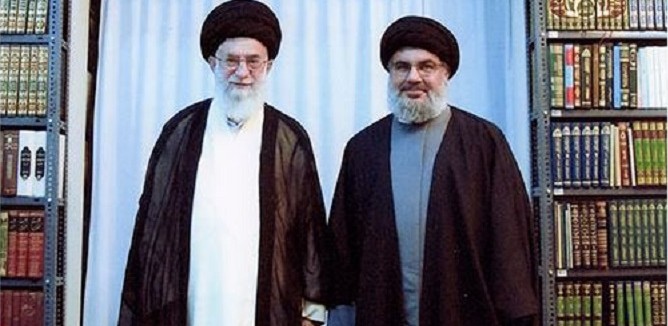Iran and its terrorist proxy Hezbollah are coordinating to seize control of large swaths of Syria in the aftermath of Bashar al-Assad’s expected downfall, according to analysis published today by Israeli Brig.-Gen. (ret.) Dr. Shimon Shapira:
Suleimani… now appeared to be prepared to extend Iran’s control to all of Syria. A media source normally hostile to Iran and Hizbullah but which nonetheless contains accurate information, reported that Iran has formulated an operational plan for assisting Syria. The plan has been named for Gen. Suleimani. It includes three elements: 1) the establishment of a popular sectarian army made up of Shiites and Alawites, to be backed by forces from Iran, Iraq, Hizbullah, and symbolic contingents from the Persian Gulf. 2) This force will reach 150,000 fighters. 3) The plan will give preference to importing forces from Iran, Iraq, and, only afterwards, other Shiite elements. This regional force will be integrated with the Syrian army. Suleimani, himself, visited Syria in late February-early March to prepare the implementation of this plan.
Details of the Iranian plan have been emerging since early 2013, when the Washington Post revealed Tehran’s moves to create a network of militias inside Syria to preserve Iranian interests. Shapira’s analysis adds to what was already known, and also emphasizes the strategic importance with which Iran views Syria:
An important expression of Syria’s centrality in Iranian strategy was voiced by Mehdi Taaib, who heads Khamenei’s think tank. He recently stated that “Syria is the 35th district of Iran and it has greater strategic importance for Iran than Khuzestan [an Arab-populated district inside Iran].” Significantly, Taaib was drawing a comparison between Syria and a district that is under full Iranian sovereignty.
Gulf states have been issuing increasingly pitched warnings regarding the immunity that nuclear weapons acquisition would provide to the Islamic republic as it seeks to expand its regional influence. The prospect of Iranian-backed militias seizing military control of an Arab state would – at a minimum – deepen those concerns.
[Photo: Al-Ahed News]




